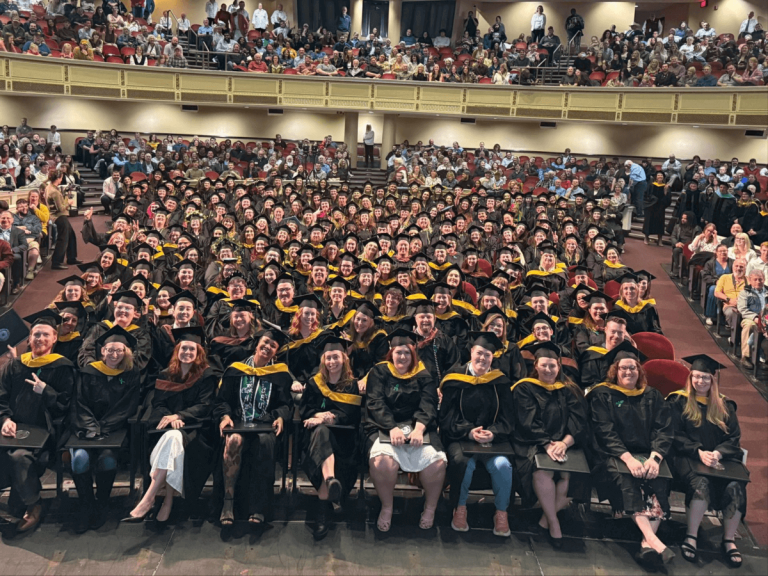
When the American chestnut tree — which once covered the Appalachian Mountains from Maine to Alabama with 4 billion trees — became functionally extinct from Chestnut Blight, there were a lot of questions left unanswered, the most important of which remains “how do we bring them back?”
For the past three years, Unity College has partnered with The American Chestnut Foundation in an effort to answer that very question. In March, students assisted in sowing roughly 1,300 chestnut seedlings at the College’s McKay Farm and Research Station in Thorndike. Now, on Saturday, July 14, those seedlings will be transported and planted on tribal lands owned by the Penobscot and Passamaquoddy tribes. Since the project began, Unity College students have helped plant roughly 3,500 saplings across Maine.
“This project is helping to develop a restoration protocol, and find out what the ideal conditions are for the chestnut tree to thrive in the wild, with the goal of restoring the species to its native range in the Eastern United States,” said Dr. Matt Chatfield, Associate Professor of Conservation Biology. “Presumably in the next five, ten, twenty years, we’re going to have seeds that are nearly or almost completely resistant to blight, and we’ll know the best locations to plant them.”
The American Chestnut Foundation is using a traditional backcross breeding method to introduce resistance from Chinese Chestnut trees into the American population. Chinese trees are naturally resistant, having co-evolved with the fungus from Asia that wiped out the population in the US. The hybrid trees being planted are not immune to the disease, but are intermediate in resistance between pure American and Chinese trees. More breeding and testing will be necessary to increase the levels of resistance.
“Not only does this initiative tie in with our students’ interest in conservation and genetics, it also gives them an opportunity to learn in a unique environment with a project that is very real and very important,” said Dr. Melik Peter Khoury, President of Unity College. “This project makes for powerful learning because it’s a conservation effort where students can see results not 100 or 200 years from now, but within the very near future.”
Dr. Chatfield has integrated the partnership with The American Chestnut Foundation into multiple courses, inviting experts such as Dr. Brian Roth, director of the Cooperative Forestry Research Unit at the University of Maine School of Forest Resources, to work with students and help with the sowing and planting. The plantings are early research trials that will inform future larger plantings when more potentially disease resistant seeds are available.
“We’ve been building on this project every year,” said Dr. Chatfield. “The students can tap all these people for information. This is also boots on the ground conservation. We are literally getting our hands dirty and putting seeds in the ground.”
Partial funding for this research project is provided through the National Science Foundation with the goal of increasing Native American participation in science, technology, engineering and mathematics (STEM).



